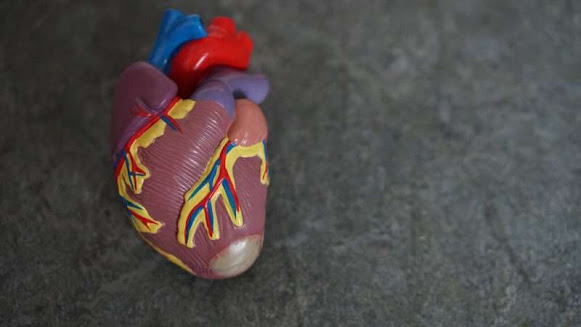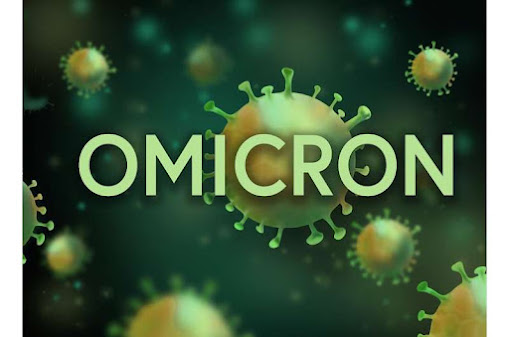Even mild or moderate COVID-19 can affect the cardiovascular system in young adults, study shows
Even mild or moderate COVID-19 can affect the cardiovascular system in young adults, study shows
A review led at São Paulo State University (UNESP) in Brazil shows that even gentle to direct contamination by SARS-CoV-2 can cause an irregularity in the cardiovascular arrangement of youthful grown-ups without previous sicknesses. The analysts additionally presumed that both stoutness and a low degree of actual work are key elements in post-COVID that assist with modifying the autonomic sensory system, which controls such fundamental capacities as circulatory strain, pulse and relaxing.
The review, which was upheld by FAPESP, involved male and female patients matured 20-40 preceding they were immunized.
"The outcomes offer components that ought to empower individuals even with gentle side effects of COVID-19 to look for a more point by point finding. The cycles set off by the infection can have results of which the patient is uninformed," said Fábio Santos de Lira, head examiner for the undertaking. Lira is a teacher in the Department of Physical Education at UNESP's School of Sciences and Technology in Presidente Prudente, and one of the writers of an article on the review distributed in a unique issue of the International Journal of Environmental Research and Public Health, named "Effect of Lifestyle Interventions in Immune Response, Inflammation and Vascular Health."
The review was essential for a more extensive venture called Fit-COVID, which plans to make sense of a portion of the holes in logical information on the regular history of the illness with a particular spotlight on invulnerable, provocative and metabolic markers, in corresponding with an appraisal of the time-related modulatory impacts of active work and body sythesis.
The analysts enrolled COVID patients in Presidente Prudente, a city in the inside of São Paulo state for certain 232,000 occupants. In end-February 2022, it had 39,049 affirmed cases and 982 passings from the illness.
The members had been analyzed by RT-PCR not over a half year beforehand and had gentle to direct side effects of COVID. A benchmark group included age-matched sound subjects. An aggregate of 57 individuals were assessed, with 38 leftover as the review test after rejections attributable to ongoing infection, drug use and immunization, among different reasons.
They went through an underlying appraisal that included weight list (BMI, the proportion of weight to stature squared, used to decide overweight and heftiness) and estimation of actual work by three-hub accelerometer. Autonomic sensory system (ANS) working was surveyed by estimating pulse fluctuation.
The principle finding was that the post-COVID patients, in any event, having had gentle to direct side effects, showed increased movement of the thoughtful sensory system (a division of the ANS that manages the reaction to risk, serious exertion and stress), decreased action of the parasympathetic sensory system (the other division of the ANS, answerable for resting capacities, absorption and energy preservation), and lower in general changeability than the benchmark group. As such, pulse was higher and the organic entity did less to moderate this in the post-COVID patients.
In subjects who were overweight or hefty, and additionally actually idle, autonomic pulse adjustment was less compelling. As indicated by the creators, the review gives new experiences in regards to the job of BMI and active work on post-COVID autonomic liberation that might add to a superior comprehension of the pathophysiology and treatment of post-intense COVID side effects.
"We didn't anticipate such a changed cardiovascular framework, since they were youthful and didn't have different sicknesses. Our review shows that critical useful changes are conceivable in individuals who have had COVID, even without serious side effects. This pulse variety, for instance, could become arrhythmia in future," said Luciele Guerra Minuzzi, a postdoctoral individual at UNESP and a co-writer of the article, close by Ana Paula Coelho Figueira Freire, first writer and an analyst at the University of Western São Paulo (UNOESTE), and Bruna Spolador de Alencar Silva, last writer and furthermore a postdoc at UNESP.
The varieties were reflected in the subjects' everyday exercises, for example, the ability to perform actual activities, climb flights of stairs and even walk. They detailed exhaustion and shortcoming. A straightforward test, for example, a six-minute walk is adequate to identify the issue.
As per Minuzzi, the gathering prior tracked down proof of metabolic dysregulation in hospitalized serious COVID patients, remembering elevated degrees of lipids for the circulatory system and modified glycemia.
A review distributed in August 2021 by researchers at Appalachian State University in North Carolina (U.S.) identified autonomic dysregulation in youthful grown-ups recuperating from COVID, however utilized an obtrusive technique, while the Brazilian specialists settled on an easier, less expensive and harmless strategy.
At that point, the end was that the physiological effect of COVID on resting pulse might keep going up to a few months, potentially attributable to autonomic brokenness. The outcomes were ascribed to exacerbated irritation during COVID, not least inferable from the arrival of provocative cytokines.
Subsequent stages
As indicated by Lira, the specialists are presently dissecting different consequences of similar tests and will distribute further discoveries soon. The undertaking includes a multicenter study, with researchers at the University of Coimbra and the Coimbra Polytechnic Institute (Portugal) likewise taking part.
Also, similar patients keep on being followed subsequent to being immunized. They were evaluated a month and a half subsequent to getting the antibody. The following evaluation will be acted in the eighteenth month after immunization.




Comments
Post a Comment